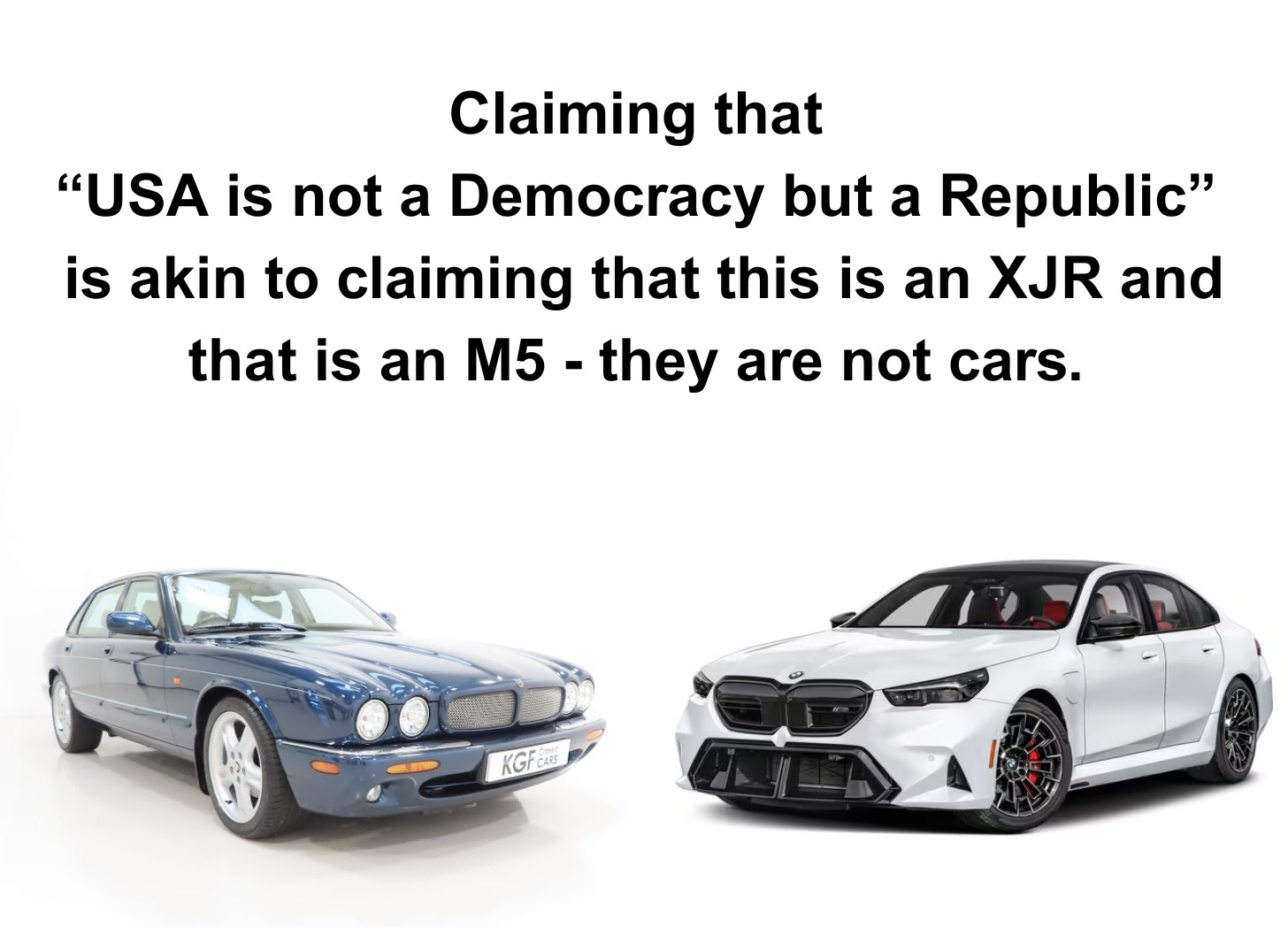The False Claim That “U.S. is a Republic, Not a Democracy”
The Popular Refuge of U.S. Authoritarians
The claim that “America was never a democracy, it’s a republic” is not only a semantic sleight of hand but it is also historical illiteracy masquerading as constitutional insight and a disingenuous distortion of American history to excuse authoritarian impulses. The United States was founded as a constitutional republic with democratic institutions. In plain terms: it is both.
When the Founders spoke of avoiding “mob rule,” they were critiquing direct democracy, not the concept of democratic governance itself. What they created instead was a system of representative democracy, i.e. a republic, where the people elect leaders to govern on their behalf. The entire point of elections, the checks and balances and an independent judiciary is to ensure democratic accountability within a republican structure.
Yes, the United States is a republic. The Constitution, ratified in 1788, lays out a system in which the people elect their leaders. Article I, Section 2 begins: “The House of Representatives shall be composed of Members chosen every second Year by the People…” The very foundation of the republic rests on popular sovereignty.
James Madison, often called the Father of the Constitution, wrote in The Federalist No. 39 that the government “derives all its powers directly or indirectly from the great body of the people.” He explicitly contrasted the American system with monarchies and aristocracies and embraced the principles of democratic governance.
Thomas Jefferson described democracy as “the only pure republic.” Even George Washington, often wary of populism, affirmed in his Farewell Address that the American system depends on “the people’s voice” as the ultimate source of power.
To pretend that calling the U.S. a “republic” somehow excludes democracy is like arguing that being a mammal excludes you from being an animal. It is a false dichotomy used today by those who wish to undermine democratic norms while cloaking themselves in patriotic jargon.
Those invoking “republic not democracy” today are usually trying to justify authoritarian rule. They hide behind the word “republic” as a shield for anti-democratic behaviour. But no matter how loudly they chant it, America’s legitimacy still rests on the consent of the governed and that is the very definition of democracy.
References
Hamilton, A., Madison, J. and Jay, J. (1788) The Federalist Papers. New York: J. and A. McLean. (See: Madison, J., Federalist No. 39)
Jefferson, T. (1816) Letter to Samuel Kercheval, July 12. In: T.J. Randolph, ed., Memoir, Correspondence, and Miscellanies from the Papers of Thomas Jefferson, Vol. 4. Boston: Gray and Bowen, pp. 416–417.
U.S. Const. art. I, § 2.
Washington, G. (1796) Farewell Address. Available at: https://founders.archives.gov/documents/Washington/99-01-02-00955 (Accessed 12 May 2025)





